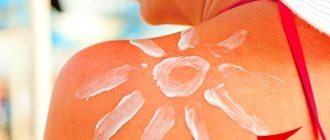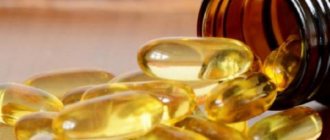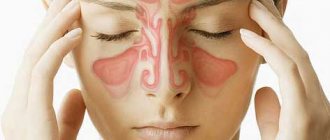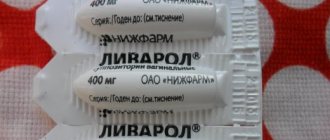Cause
There are many reasons why people bite their cheek. Cheek and lip biting can sometimes occur as a result of an accident, but it can also be related to a mental health condition.
Careless chewing or talking while eating can sometimes result in a person accidentally biting their cheek. Accidental bite can lead to injury and inflammation at the site of injury.
If a person regularly accidentally bites their cheek, this should be discussed with their dentist. This can occur in people with a crooked bite. People with temporomandibular joint disorders may also bite their cheeks frequently.
Chronic cheek bite is a more serious condition that requires appropriate medical attention. The current Diagnostic and Statistical Manual of Mental Disorders (DSM-5) includes it among obsessive-compulsive and related disorders.
Chronic cheek bite often has a psychological cause. Researchers believe that repetitive self-harm-oriented behavior may have a genetic factor. If this is the case, then having an immediate family member, such as a parent or sibling, with repetitive self-harm behaviors may increase the risk of the condition.
Scientists are now trying to determine which genes may play a role in repetitive behavior, which could help doctors diagnose and treat this behavior in the future.
Many other factors can also contribute to a person developing chronic malocclusion. These include stress, as well as emotional and environmental factors.
What does it mean to bite your tongue, lip or cheek?
According to popular wisdom, a person who accidentally bites his tongue, lip or cheek on the inside should prepare for any surprises. However, no serious problems are expected, so there is no need to be scared or worried. The article talks about what folk signs promise in these cases.
General interpretation
If a girl bites her lip, this may portend a strong quarrel with a loved one. Therefore, when communicating with your significant other, you need to watch your words and not throw them to the wind, otherwise a scandal cannot be avoided. Also, the meaning of the sign is interpreted taking into account which lip is bitten more often - the upper or lower one.
Biting your lower lip means it is difficult for a person to make responsible decisions. But if such a character trait is not inherent in the person, you should pay attention to what day this event occurred. Probably, very soon noticeable changes will happen in life that will change its usual course.
If, at the sight of the opposite sex, a guy or girl bites their upper lip until it bleeds, it means that there is an irresistible passion for this person. A lip bitten by accident promises fun, celebration, and a pleasant pastime.
An upper or lower lip bitten during a conversation is a sign that a person does not follow his words and talks a lot of unnecessary things. The sign warns - you need to stop, shut up, otherwise troubles cannot be avoided.
Why your feet itch: folk signs
If a person intuitively bites his lips, this indicates that the conversation is unpleasant and he wants to end it as soon as possible. Therefore, if the interlocutor bites his lips every now and then, it is better to move the conversation to another topic or say goodbye to him altogether.
If you unexpectedly happen to bite your lip while eating, this means a pleasant time with the opposite sex. But if a participant in the meal bites only the edge of his lip, this warns of imminent troubles involving loved ones. Sometimes such injury promises financial difficulties that will be difficult to cope with.
If you bite your lip in a dream, this portends serious troubles that were the result of a stupid mistake made in a conversation.
Biting the cheek from the inside, a sign predicts troubles for a person associated with untrue gossip spread by envious people and ill-wishers.
However, the left cheek promises a pleasant date that will end in passionate kisses and continuation of the relationship.
Biting the cheek on the right means that a person will face unpleasant news that day, a quarrel with loved ones, friends or colleagues. You need to watch your actions and not provoke others into unpleasant conversations.
According to folk superstitions, burning your tongue is a bad omen, promising a person a major quarrel and even a scandal. In this case, conflict can happen both with loved ones and with strangers.
If the right side of the tongue is bitten, it means that someone from the environment is spreading gossip that denigrates and belittles a person’s dignity. It’s worth taking a closer look at your friends and colleagues, trying to remember if you accidentally offended anyone, and thinking about whether you may have made enemies through your actions.
A tongue bitten on the left indicates that a lot of unnecessary things have already been said, it’s time to shut up or switch to another topic. If at this moment the thought comes to someone to say more than planned, it is better to stop and think carefully again before committing such an act. The sign warns that it is better to remain silent than to later deal with the consequences of chatter.
https://www.youtube.com/watch?v=RWuJfCQPHoU
A bitten tip of the tongue may mean that a person managed not to tell his interlocutor unnecessary things that he does not need to know about.
For a woman, burning her tongue while cooking means pleasant chores and a visit from guests.
Value by day of week
- If you happen to bite your tongue or lip during a conversation on Monday, it means that throughout the week you need to watch your words and not say too much, otherwise talkativeness will negatively affect your reputation;
- If such a nuisance happened on Tuesday, it means a serious quarrel or scandal, and it doesn’t matter whether at home or at work you failed to explain yourself correctly to your interlocutor;
- A tongue or cheek bitten on Wednesday promises long, fruitless conversations that will take a long time;
What to expect if an icon falls
- If you bite your lip on Thursday, it means that a person with whom you have not been able to see for a long time will soon come to visit;
- Biting your tongue on Friday is a bad omen, promising anxious, restless times that will pass soon;
- On Saturday, such a nuisance promises a lot of problems. Enemies are just waiting for a person to make the wrong move so that they can take the chance and take his place;
- A lip bitten on Sunday foreshadows minor troubles or receiving sad news from loved ones. And if your tongue is bitten on the last day of the week, soon a person will come to visit who is unpleasant and unwelcome in the house.
Complications
When someone repeatedly bites their cheek, the area may appear thickened and paler than the surrounding tissue. Sometimes the affected area may be accompanied by purple spots. In more severe cases, dentists may notice tissue necrosis.
Patients who constantly bite their cheek may stop engaging in social activities to prevent other people from imitating their behavior. Some people may feel shame, isolation and low self-esteem due to their repetitive behavior, which can affect their overall well-being.
Why bite your lip while talking or eating?
A sane person knows how to learn a lesson from everything, even from superstitions. Naturally, it is not worth considering an accidentally bitten lip as an unambiguous message from the future, but it is also not entirely reasonable to treat a sign as a sign of the impenetrable stupidity of ancestors. Better turn on your analytical skills and try to follow the logic of your ancestors. It turns out that many superstitions have it! Although, let’s be honest, sometimes it’s very strange...
- During a conversation, talkers and idle talkers bite their lips.
If an unpleasant incident occurred while you were having a lively conversation with someone, most likely you were in too much of a hurry to get your point across. So the sign is partly right: slow down, listen more and weigh your words more diligently before uttering them. This way you will definitely not be known among your friends as a stupid ratchet.
- If you bite your lip, it means you blurted out something unnecessary.
As they say, “see point one.” When you talk a lot and without a break, something unnecessary will come out of your mouth.
- If you bite your lip while talking, you will quarrel with your interlocutor.
If you bite very painfully, you may quarrel out of frustration. Take a break, drink water, apply ice to the sore spot.
- If the lip gets hurt while eating, its owner will have to kiss someone.
Here logic is powerless, but there is no great need to explain the sign. If it comes true, great. If it doesn’t come true, it’s okay, you’ll find an object to kiss another time.
A bitten lip can serve as a playful hint. So much for kisses!
- Another difficult-to-explain sign considers a lip caught between the teeth to be a sign of unpleasant news that a person is about to hear. Why? The ancestors did not report this. Didn't the same amazing logic of the ancestors work here? Many people bite their lip out of frustration when they receive unexpected bad news. If there is no news, and your lip is bitten, it means that this happened “in advance” and you should still expect messages.
Treatment
If a person regularly bites their cheek, it is necessary to consult a dentist to ensure that their teeth or implants are in the correct position. If necessary, the dentist may advise the person to see an orthodontist, who can correct the misalignment to prevent regular cheek bites.
Sometimes the dentist will prescribe a mouthguard, which can prevent any further damage to the tissue and give it a chance to recover. Dentists recommend using a mouthguard until the tissue has completely healed.
People who constantly bite the lining of their cheeks should consult a doctor.
Your doctor may suggest one of the following types of therapy:
- cognitive behavioral therapy (CBT);
- dialectical behavior therapy.
Sometimes doctors may recommend medications in addition to psychotherapy.
There is no convincing evidence that special diets, electrical stimulation, hypnosis, massage, or other practices are effective in treating repetitive behavior.
If suddenly there was a bite on the cheeks bookmarks 29
Most often , biting the tongue or the mucous membrane of the cheek occurs during a hastily eaten meal. Practice shows that most cases of malocclusion occur in children. A painful wound is formed that bleeds for some time. However, this wound heals quite quickly on its own, which is explained by the abundant blood supply to the oral mucosa.
The healing of wounds that form on the mucous membrane of the tongue and cheek can be accelerated by using some simple remedies. When biting it is recommended:
• rinse with boiled hot water throughout the day (the water should be as hot as can be tolerated); hot water suppresses infection well, thereby preventing the development of inflammation;
• it is also recommended to drink (in small sips) hot unsweetened black long tea as an effective healing agent; the product has a pronounced anti-inflammatory effect;
• it is recommended to rinse your mouth more often with a decoction of the herb Salvia officinalis; preparation of the product: one tablespoon of dried raw materials, ground into powder with a pestle and mortar, pour 200 milliliters of boiling water and keep in a boiling water bath for 10-12 minutes, then let the product cool, strain through cheesecloth; perform the rinsing procedure seven to eight times a day; the product has an antiseptic and anti-inflammatory effect;
• as an effective antimicrobial, anti-inflammatory and analgesic, use a warm infusion of chamomile flowers for systematic rinsing; preparation of the product: pour 6-7 grams of dried, well-crushed flowers with a glass of boiling water and leave in a sealed container at room temperature for 45 minutes, strain through one or two layers of gauze, squeeze out the remaining raw materials; rinse your mouth as often as possible; duration of treatment – several days;
• phytomedicine also recommends rinsing the oral cavity when biting with an infusion of calendula officinalis flowers, an infusion of flowers and leaves of St. John's wort, an infusion of Crimean rose petals, an infusion of bluebell flowers, an infusion of peppermint herb, an infusion of rhizomes with roots of marshmallow, an infusion of oregano herb, an infusion of the herb creeping thyme (thyme), infusion of common raspberry leaves, infusion of wild strawberry leaves, etc.; all of these agents have antimicrobial and anti-inflammatory effects, accelerate the healing of damaged tissues; many of these drugs have an analgesic effect;
• traditional medicine recommends drinking a warm infusion of silver birch buds in small sips; preparation of the product: dried buds must be thoroughly crushed with a pestle in a mortar, place one dessert spoon of powder in a thermos, preheated with hot water, pour a glass of boiling water, leave with periodic shaking for at least an hour; take one third of a glass three times a day; a child can drink one quarter glass two to three times a day; the infusion can be prepared (using the same method) from green birch branches; the product demonstrates a pronounced antiseptic and anti-inflammatory effect;
• traditional medicine recommends drinking warm black long tea with honey and lemon; drink tea in small sips; before going to bed, you can eat one teaspoon of bee honey mixed with lemon juice in equal quantities; from the effects of this remedy, wounds on the oral mucosa heal quite quickly;
• it is also recommended to systematically chew (chew thoroughly) the lemon along with the peel; eat a slice of lemon three times a day; due to the significant amount of ascorbic acid in lemon, the product has an antiseptic and anti-inflammatory effect; you can rinse your mouth with warm lemon juice diluted with an equal amount of boiled water;
• rinse the mouth with fresh juice of Kalanchoe pinnate leaves or juice of Aloe vera leaves; for one rinsing procedure, two to three tablespoons of juice are enough; rinse once or twice a day; these agents have a known anti-inflammatory effect, stimulate the process of tissue regeneration; traditional medicine recommends rinsing the mouth with warm juice squeezed from red beets; for one rinsing procedure, two to three tablespoons of juice are enough; To enhance the antiseptic effect, table vinegar can be added to the juice; the mixture is prepared from the ratio: 1 teaspoon of vinegar per half a glass of beet juice or freshly squeezed lemon juice (the juices are mixed in equal quantities); You should take several rinses a day; after each rinse you should not drink or for 30 minutes;
• traditional medicine recommends rinsing the mouth with tincture, which is prepared from the juice of raw red beets, marsh cranberry juice (or lingonberry fruit), bee honey and vodka, the components should be taken in equal quantities; the components of the mixture are thoroughly mixed, and the product is infused in a sealed container in a dark, cool place for three to five days; You should rinse your mouth several times a day; the product exhibits antimicrobial and anti-inflammatory effects;
• you should regularly rinse your mouth with a warm mixture of juices squeezed from the fruits of lingonberries, swamp cranberries and lemon; perform the rinsing procedure several times a day; after rinsing, do not eat or drink for half an hour; the mixture of these juices can also be drunk in small sips (before swallowing, hold the mixture for some time in the oral cavity);
• rinsing the mouth with a warm infusion of garlic can also be very effective; preparation of the product: grind one or two cloves of fresh garlic with a pestle in a mortar, pour a glass of boiling water and leave in a tightly sealed container at room temperature for about an hour, then strain through two layers of gauze; perform the rinsing procedure several times a day; the product has a strong antiseptic effect (due to the high content of phytoncides and vitamin C);
• traditional healers recommend rinsing your mouth with fresh warm cabbage juice; for one rinsing procedure, a few tablespoons of juice are enough; You can add a little bee honey to this juice; the product has a bactericidal and anti-inflammatory effect, accelerates the healing of wounds on the mucous membrane;
• traditional medicine recommends using gruel made from grated apple, grated fresh onion and bee honey as an antiseptic and anti-inflammatory agent; preparation of the product: the above components must be combined in equal quantities and mixed well; the product is ready for use; swallow the mixture in small sips, holding it in the mouth for a while;
• phytomedicine recommends regularly chewing spruce and pine resin (resin collected from trunks); for one treatment session, a very small piece of resin is enough - the size of a pea; chew oleoresin once or twice a day; phytoncides contained in the product have a powerful antiseptic effect;
• systematically chew a small piece of propolis (about the size of a pea); propolis is an excellent healing agent; when biting, it is recommended to chew propolis at least once a day; the duration of treatment with propolis is not limited in time; biologically active substances contained in propolis have an antiseptic and anti-inflammatory effect.
Jul 15, 2015tigress…s
Summary
Cheek biting can sometimes be a harmless accident or the result of a malocclusion, but many people experience chronic cheek biting. Chronic cheek biting is a self-harm-focused, repetitive behavior that is associated with obsessive-compulsive disorder.
Doctors prescribe psychotherapy to help people treat chronic cheek bite. Sometimes people may also need to take medications.
Complications of chronic malocclusion are not only physical. Many people feel shame and low self-esteem as a result of these behaviors, which can lead them to avoid social and career interests.
Another article on the topic: Older people who go to church have good mental health.
Prevention of soft tissue biting
- If this happens rarely, then the main advice in this case would be the desire to be more attentive.
- If damage occurs regularly due to the fact that the tooth is tilted or a poor-quality filling or crown is installed on it, then the old restorations will have to be replaced with new ones that correspond to the anatomy of the tooth.
- If you frequently bite the inside of your cheek, one of the methods of prevention is selective grinding of the bumps. The dentist carefully files down the bumps that interfere with the normal closure of the jaws. Initially, the method was used as part of complex therapy for periodontal diseases to remove excessive load on the ligamentous apparatus of the tooth and prevent its loosening.
Do you know everything about colds and flu?
Materials: https://zdravotvet.ru/prikusil-shheku-iznutri-yazyk-gubu-chto-delat-obrazovalas-shishka-yazvochka-prichiny-chastogo-prikusyvaniya/
What happens when bitten
Permanent mechanical trauma, if the cheek is bitten from the inside, leads to the formation of a growth in the mouth. Gradually, this interferes with the normal closure of the jaw. The damaged surface is always exposed to sharp edges of the teeth.
In addition to compaction, wounds may appear that resemble the initial stage of stomatitis. With a strong bite, saliva is mixed with blood, so it can be confused with bleeding from the gums.
In most cases, cheek bites are not serious. The exception is when the mucous membrane is compressed during a fall. At this point, a large area of the epithelium may be damaged and bleeding may occur.
Important: Sometimes damage due to bite develops into another pathology if the tissues have become infected. It is possible to distinguish a regular injury from an infection only after diagnosis by a doctor.
What are the consequences of “self-eating”?
If a “self-bite” happens occasionally, and after that the person follows all the rules of hygiene and oral care, the wound in most cases heals successfully. But sometimes, due to a careless attitude towards oneself or due to some other factors, secondary conditions develop - dangerous to health and life.
"Language Wars"
The best thing that can happen with a tongue injury is long-term pain.
This fleshy organ takes a long and painful time to heal, especially if the person has bitten his tongue very hard and the wound is deep.
Other consequences of bite are associated with infection and represent a chain of conditions arising from each other:
- Glossitis. A tongue subject to inflammation changes its color and structure. There is discomfort, a slight burning sensation, and the person may lose the sense of taste.
- Abscess . The tongue begins to swell from the inside, and the person cannot eat or speak normally due to pain.
- Phlegmon . The inflammation reaches the point that the patient is no longer able to swallow or even breathe normally. Such a person is indicated for urgent hospitalization.
Damage to the buccal mucosa
Soft tissues heal quickly, but at the same time a pathogenic agent may have time to get into the wound. Typically, injuries to the buccal mucosa accompanied by infection lead to the following complications:
- Aphthous stomatitis . The disease is prone to relapse. It is a collection of small ulcers on areas of the oral mucosa that cause unbearable pain to a person.
- Herpetic stomatitis . Herpes lives in the bloodstream of 99% of people, so with low immunity there is a high risk that this virus will “wake up” and colonize the wound. With such a lesion, crowded small bubbles with liquid inside settle on the mucous membrane around the injured area.
- Afta Bednar . The disease mainly affects children. A special type of bacteria begins to multiply in the wound due to poor oral hygiene. The mucous membrane becomes covered with a yellowish coating.
Teeth on lips...
There is a lot of loose fiber in the lips and a strong bite can not only cause a wound, but cut off part of it. After biting your lip, the following complications may occur:
- Hematoma . Internal bleeding after biting can be quite severe. The lip swells, becomes painful, and its functions are partially impaired. A hematoma can have a complication in the form of purulent inflammation, which is very dangerous. The temperature rises to 40 degrees.
- Inflammation . When an infection gets into the wound, the lip swells and fills with purulent exudate. The patient feels an unpleasant odor emanating from the site of injury. The condition requires urgent treatment.
Wisdom teeth
Very often the last molars, or wisdom teeth, erupt atypically. with a tilt to the side, displacement from the dental arch, rotation. In the “figure eight” position, with the crown towards the cheek, the latter “covers” the tooth completely, as a result of which it falls between the teeth when the jaws are closed. This is clearly felt during active chewing movements while eating. Such bites can be quite deep and painful, and with constant injury and attachment, such areas of the mucous membrane become inflamed, causing a lot of discomfort to the person.
What measures should be taken
After damage to the soft tissues of the oral cavity, a wound will certainly remain at the site of the bite. First of all, you need to take care of reducing pain and stopping bleeding. The only method that will help you reduce bleeding at home is rinsing your mouth with cold water, the fact is that cold leads to constriction of blood vessels, and therefore profuse bleeding.
Two percent lidocaine or anesthetic drops can help relieve pain.
To reduce pain, you need to take a cotton swab and soak it in the medicine, apply it to the affected area.











